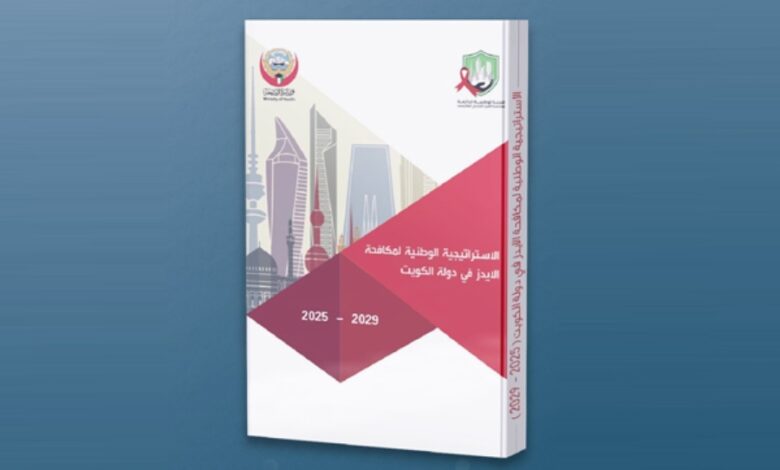
The Ministry of Health, through the National Permanent Committee for Combating Acquired Immune Deficiency Syndrome (AIDS), has officially launched the National AIDS Strategy 2025–2029, a comprehensive plan designed to reduce the impact of HIV/AIDS by the year 2030. The strategy is based on an integrated model that combines prevention, early diagnosis, treatment, and ongoing support for individuals living with HIV.
Developed in collaboration with a select group of local and international experts—and with the active participation of representatives from relevant government and non-government entities—the strategy reflects Kuwait’s commitment to international health standards and global targets in combating HIV/AIDS, reports Al-Rai daily.
The following are the key objectives of the strategy:
- Diagnose 95% of those infected with HIV to ensure early detection and timely treatment.
- Eliminate mother-to-child transmission of the virus through preventative measures and routine screenings.
- Expand awareness, prevention, and routine testing programs to reduce the number of new infections and promote public health education.
- Enhance the quality and accessibility of care, ensuring that all people living with HIV receive comprehensive and continuous healthcare.
- Reduce stigma and discrimination by creating a supportive social environment that protects the rights and dignity of those affected.
The strategy also prioritizes the modernization of Kuwait’s health information system, incorporating 35 key performance indicators to ensure decisions are driven by accurate, real-time data. This evidence-based approach aims to improve the efficiency and effectiveness of preventive and therapeutic interventions.
The Ministry emphasized that this new strategy is part of Kuwait’s broader efforts to enhance public health infrastructure and meet the targets outlined in the Sustainable Development Goals (SDGs).
It reaffirms Kuwait’s pledge to ensure equitable access to healthcare services, build a more health-literate society, and address emerging health challenges proactively and responsibly.












